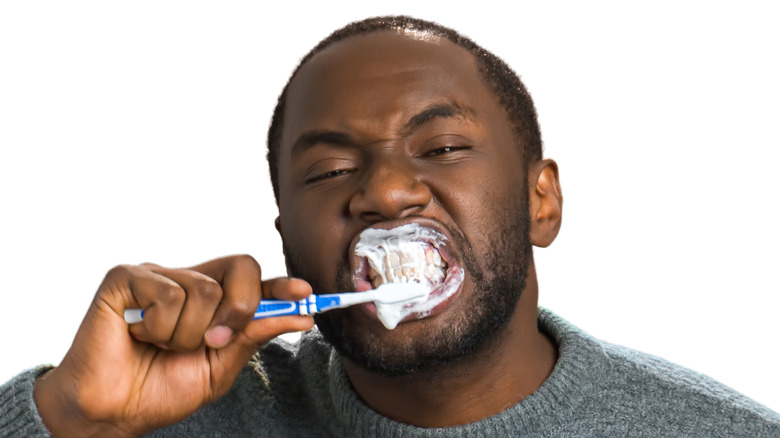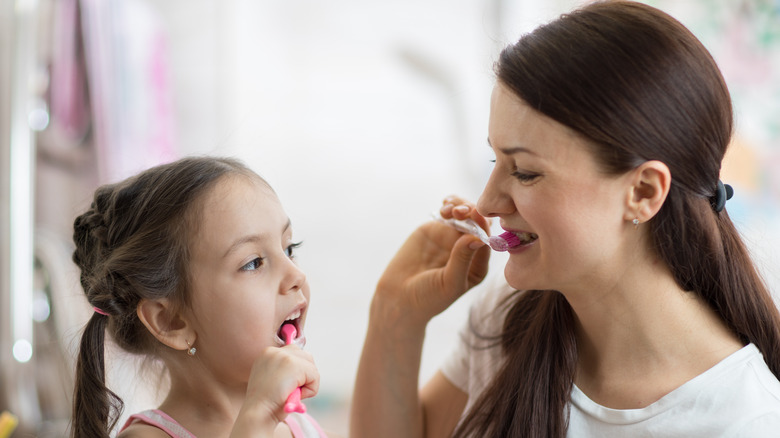This Is How Hard You Should Brush Your Teeth
While brushing your teeth regularly is one of the best ways to maintain good dental hygiene, brushing too hard can be a harmful practice. According to the experts at Hancock Village Dental, some people believe that hard brushing is the most effective way to remove food particles and plaque, but this is not necessarily what's best for your teeth.
If you frequently brush your teeth too hard, it could result in toothbrush abrasion. This can lead to the loss of connective tissue called cementum, as well as enamel, ultimately affecting your smile. Brushing too hard can also result in gum recession, tooth sensitivity, and teeth appearing less white due to the loss of enamel. Ultimately, brushing hard is not necessary to remove food particles and plaque. When selecting a toothbrush, try to avoid hard and medium bristles to be more gentle while brushing your teeth. Soft-bristled toothbrushes are ideal for daily brushing.
Some best practices for brushing your teeth
There are many changes you can make to improve your brushing practices. First, make sure you are brushing with the correct toothbrush. Minnesota-based dentist Kimberly Harms told WebMD that whether you use a manual or electric toothbrush, a good toothbrush should reach all areas of the tooth. It should also have soft bristles so you can brush more gently.
Another bad habit is rushing through brushing. The advised approach is brushing twice a day for a minimum of two minutes. "If you brush while you listen to one of your favorite songs, you've probably been in there long enough," Ohio-based dentist Matt Messina told WebMD.
One of the most common mistakes people make while brushing is missing the gum line. It's vital to brush the gum line, where bacteria has a tendency to build up. The best way to get to the gum line is by angling the brush. "We normally recommend to angle the brush at a 45-degree angle against the gumline," Hans Malmstrom, a dentist in New York, told WebMD. "That gets the gum line. Then go for the rest of the tooth, with strokes that roll up and down."
However, good dental hygiene isn't just about brushing. It's a combination of regular brushing, flossing, and rinsing with mouthwash. Dedicate yourself to these practices every day, and you'll have a lot to smile about.


